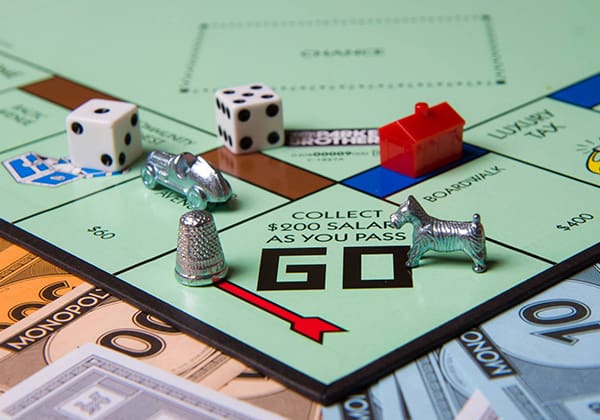Given the last year has been one of isolation, board games are more essential than ever before. They allow you to have fun, test your skills, compete, and spend a few hours rolling dice and moving meeples. The ability to socialise and connect in a relaxed setting is often overlooked, and board games can provide the perfect opportunity to do just that.
While many people consider board games to be too nerdy or too boring, this is a massive generalisation that fails to consider the variety of games that exist. Yes you have your classics, like Monopoly, Life or Trouble, but there are so many more! Escape rooms, construction, storytelling, and war games.The list never ends. Recent years have seen an explosion in the development and sales of different types of games, particularly with lockdowns resulting in increased sales. The global board game industry is worth approximately $14 billion, and is expected to grow in the future.
In recent years, video games have also been on the rise. With the growth of multi-player games, competitions and streaming, the industry is worth $175billion. Though they can provide a more immersive and realistic experience, they simply cannot erase the joy of playing someone in person. The increased immersion of technology in our everyday life has its benefits, however it is also essential to enjoy time away from our screens. Board games provide an opportunity to exercise your brain, away from the computer.
Many games have the added benefit of challenging individuals mentally — to think outside the box, recognise patterns, or simply out-manoeuvre your opponent. The opportunity to practice critical thinking skills in an informal environment allows individuals to develop these abilities in a way that can’t be taught (though most of us won’t need to plan global domination outside of Risk). Not only do you practice your strategy and addition skills, but you also pick up on subtle social cues in ways you might not have otherwise. Recognising your friends’ smirk when they have a good hand and knowing when a laugh is fake, are all things that can help you throughout life.
The educational benefits of board games are also important — particularly for children. I don’t know about you, but I learnt the basics of budgeting while decimating my brother in Monopoly. Games teach essential skills, despite not outwardly advertising that intent. Scrabble expands your vocabulary (particularly if you’re interested in words you may never use again), Cluedo tests your ability to judge a social setting and your ability to lie, Betrayal at the House on the Hill gets you to think ahead and take calculated risks.
For those of you who still aren’t convinced, you simply haven’t played a good game in a while. Classic board and games like Chess and Monopoly can’t be missed, but there are so many more out there. Most games can be separated into teamwork or competition. Are you trying to stop a worldwide plague in Pandemic, or figuring out secrets in Codenames? Beyond the childhood classics, many people don’t realise the diversity that’s available.
Strategy games, such as the classic Ticket to Ride, are prominent in the industry. Whether working competitively or together, many games are based on the premise of limited resources or times, and the player’s ability to use these to maximise their points or reach an end goal. Planning ahead and thwarting your opponents can lead to some very heated arguments and some very entertaining victories (or losses). Fantasy based games, such as Gloomhaven or Catan, have the added benefit of extending your imagination beyond the confines of the real world. Why be on Instagram when you could be a Mindthief?
The joy of opening a box and spending a few hours with friends or family cannot be understated. Board games are the perfect way of spending a few hours doing something fun, bonus points if you’re procrastinating uni assessments. So next time you want to needlessly scroll on your phone, remember the pure joy of winning at Monopoly, and play a board game instead.





